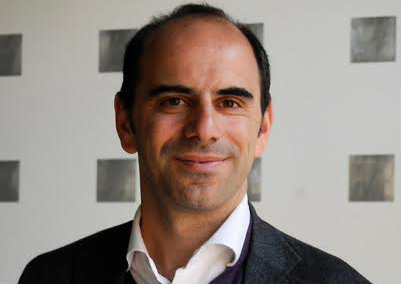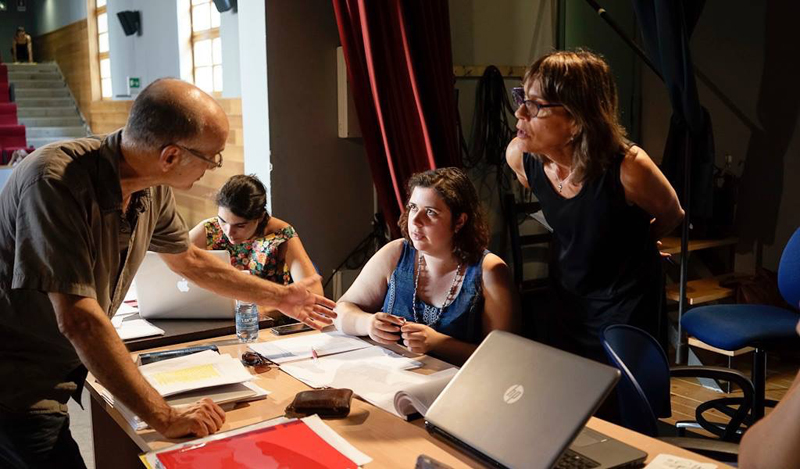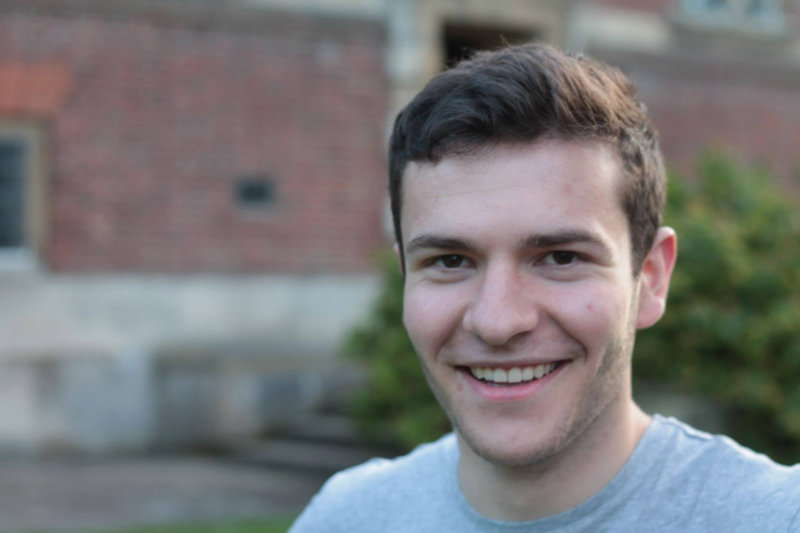 In July, as Shakespeare’s The Merchant of Venice is performed in the Venice Ghetto for the very first time, a trial featuring advocates for Shylock, Antonio and Portia will take place in Venice’s Scuola Grande di San Rocco. Will it overturn the verdict from the play, in which Shylock is tried, found guilty of threatening the life of a Venetian, and then fined and forced to convert to Christianity? Shaul Bassi, director of Beit Venezia: A Home for Jewish Culture, and one of the movers behind the city’s Jewish cultural events this year, reveals his side of the story.
In July, as Shakespeare’s The Merchant of Venice is performed in the Venice Ghetto for the very first time, a trial featuring advocates for Shylock, Antonio and Portia will take place in Venice’s Scuola Grande di San Rocco. Will it overturn the verdict from the play, in which Shylock is tried, found guilty of threatening the life of a Venetian, and then fined and forced to convert to Christianity? Shaul Bassi, director of Beit Venezia: A Home for Jewish Culture, and one of the movers behind the city’s Jewish cultural events this year, reveals his side of the story.
"It is more accurately a mock appeal," explains Bassi. "A wonderful companion piece to the production. And it’s to be held in one of the most prestigious and breathakingly beautiful venues in Venice, the Scuola Grande di San Rocco, almost entirely decorated by Tintoretto.
We’re not going to see the play’s characters. It is a mock appeal, so we’re going to have three advocates for Shylock, Antonio and Portia. Each will present a case for Shylock, Antonio with the Republic of Venice and Portia.They will try to persuade a jury of five real judges that they should reverse or confirm the verdict of the trial in the play. It’s a kind of legal sequel."
The verdict of the play could be overturned. How does Portia come to be represented?
"The idea was to keep Antonio and Shylock as the plaintiff and defendant, but one of the lawyers working on the project said there’s a case to be made that the whole legal procedure of the play was illegal because Portia was practising the law without a licence. That adds to the fun."
Who is the presiding judge?
"Judge Ruth Bader Ginsburg, Associate Justice of the Supreme Court of the United States, a legal eagle and public icon for human and civil rights in the States and beyond. We’re privileged to have her offering a contemporary dimension to our discussion.
There’s no Jewish majority in the jury. Everyone is coming here with the idea of being even-handed, but also to do their best to help the audience see al the legal and ethical implications of the play from all possible angles."
You’re also going to share what you’ve found out about Venetian merchants and the law in Shakespeare’s time…
"We’re going to have a small presentation on arbitration in early modern Venice – at that time it wasn’t a good idea to go to trial. Merchants went out of their way not to go to trial when they had a dispute to settle! They would try to resort to arbitration and the funny thing I’ve learned is that there was even a verb ‘palazzare’ which meant to go to the Palazzo Ducale for trial, which was the one thing they wanted to avoid at all possible cost."
The line up of internationally famous guests contributing to the evening doesn’t stop with Judge Ruth Bader Ginsburg, doesn't it?
"We’re going to be blessed with the presence of actor F Murray Abraham, a celebrated Shylock in the United States. He is not part of the production but of the documentary series Shakespeare Uncovered, so he’s going to lead discussion on certain aspects of the play and read out extracts. And we’re also blessed with the presence of two of the most brilliant Shakespeare scholars, James Shapiro, who wrote Shakespeare and the Jews; and Stephen Greenblatt, who has really changed the history of Shakespeare criticism."
So how will they fit into the evening?
"Each will give a little speech on the play and the three lawyers will present their case for 15-20 minutes each with questions and answers from the jury and finally we’re going to find out what’s going to happen because there’s no script. We have a structure but there’s no forgone conclusion.
All this (the trial alongside the performances of The Merchant of Venice) would not be possible without these people who really understand the uniqueness of of this moment 500 years since the creation of the Ghetto, 400 years since Shakespeare’s death. It’s an amazing coincidence, which we also wanted to use to reflect. Talking about today, it’s also about the role of foreigners in any society – the extent you’re prepared to change society to accommodate them, to expel them once they become a disturbing presence – it’s a very topical play."
How can we watch the proceedings?
"Tickets are understandably limited, but we’re going to film it."
What is your role in the production of The Merchant of Venice, as well as the events surrounding it?
"I am Associate Professor of English Literature at Ca’ Foscari University and this production and concept was conceived at the university. This very fruitful collaboration between our university and Compagnia de’ Colombari, an international theatre company, is not an academic production. It’s multi ethnic (it includes American, British, Croatian, French, Indian and Italian actors) and colour blind and to some extent gender blind. And people have brought their legal knowledge to the table. first and foremost Justice Ginsberg, so it’s a great collaborative project. It’s also winner of a Creative Europe project that included two British Universities, Queen Mary College London and Warwick University and the programme Global Shakespeare. We’ve been working together to show how Shakespeare is relevant throughout Europe."
What will be the legacy of these extraordinary events?
"We’re going to turn all the artistic material, the outcomes of both the trial and the production into educational material. The main goal for dissemination of the project will become a resource for people interested in the play that we’ve called the Shylock Encyclopedia. It will be online and the idea is that it’s really accessible to everybody and maybe it will also be a sort of open encyclopedia that one can add posts to. We want to put everything at the disposal of students, scholars, actors and directors, whoever wants to deal with this most controversial of plays for years to come."
By Judi Herman
Find more interviews with members of the Venice Ghetto production of The Merchant of Venice on JR OutLoud. Or visit www.themerchantinvenice.org for further info.






